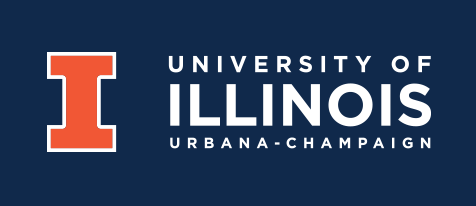University of Illinois: UIUC to co-lead $15M Great Lakes Innovation Hub
In an effort to nurture a regional innovation ecosystem and move more discoveries from the research lab to the marketplace, the National Science Foundation has established a Great Lakes Innovation Corps (I-Corps) Hub. The University of Illinois Urbana-Champaign is co-leading the Hub, along with the University of Michigan, the University of Minnesota, and Purdue University.
The 11-university Hub, headquartered at the University of Michigan, is one of five Hubs across the country that NSF announced today as it continues to evolve the I-Corps program. Launched in 2011, I-Corps trains scientists and engineers to carry their promising ideas and technologies beyond the university and into the marketplace to benefit society.
Along with the four co-lead institutions, affiliates include the University of Toledo, Iowa State University, Michigan Technological University, Missouri University of Science and Technology, the University of Akron, the University of Chicago, and the University of Wisconsin-Milwaukee.
“We are extremely proud to co-lead the NSF’s I-Corps Hub in the Great Lakes Region,” said UIUC Vice Chancellor for Research and Innovation Susan Martinis. “This will build on more than a decade of investment in our I-Corps site here at Illinois and the Midwest I-Corps Node, taking Midwest innovation and entrepreneurship to the next level. Students and faculty will benefit from access to these powerful resources, and the region will benefit from this strong support for entrepreneurship and technology commercialization.”
The impact of I-Corps
The Illinois I-Corps Site has trained more than 250 teams since 2013, and those teams have gone on to raise over $125 million in follow-on funding after participating in I-Corps training.
The new Hub has set a goal of training 2,350 teams in the next five years and sending an additional 220 teams to a more in-depth National NSF I-Corps program. The newly formed I-Corps Hub will offer regional I-Corps training where teams from across the region will participate in training together with instructors from participating Hub institutions. The Hub institutions will continue to offer introductory I-Corps training on their campuses as well.
In this way, I-Corps helps to reduce the time and risk associated with translating ideas from the laboratory to the marketplace, says Andrew Singer, associate dean for innovation and entrepreneurship in The Grainger College of Engineering.
“NSF support for deep technology innovation has made a substantial impact on the number of successful startup companies growing out of our ecosystem,” Singer said. “The non-dilutive capital and, more importantly, the lean startup methods developed through decades of deep technology innovation, make an entrepreneurial path not only extremely exciting for our community, but also make it possible.”
In cities on the East and West Coasts, entrepreneurship and innovation often thrive organically because the sheer number of investors and innovators in close proximity lead to collaboration and multiple pathways for research development, innovation, and tech transfer. The Great Lakes Hub aims to connect people at a large scale to increase the “effective density” of the Midwest’s innovation ecosystem.
A proven track record of success
Each university in the Hub already has a successful I-Corps program, and the new model will make it easier for them to network and learn from one another. At Illinois, the I-Corps program is closely affiliated with the University’s small business incubator/accelerator, EnterpriseWorks. Former I-Corps teams include Veriflow, OceanComm, Lightform, and Phi Optics, companies that were all launched through participation in the program. Another former I-Corps team, PhotoniCare, has secured $11.7 million in seed funding to help market its OtoSight Middle Ear Scope, which helps diagnose, treat, and monitor middle ear infections in children and adults. The Champaign-based company employs seven people.

